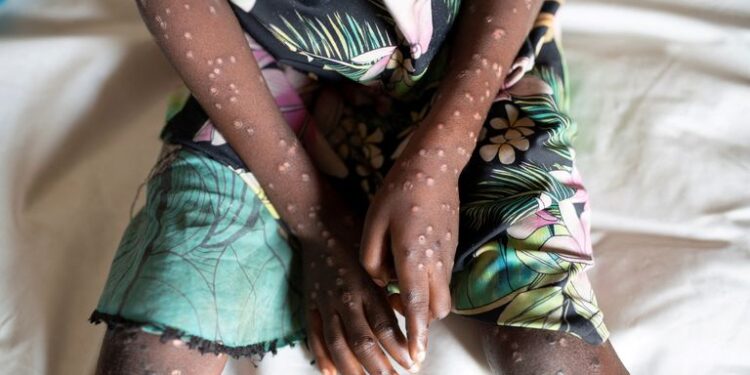The World Health Organization declared Mpox (formerly monkey pox) a global health emergency concern. Monkey Pox has been endemic in the Democratic Republic of the Congo for more than a decade and was recently detected in the neighboring countries of Rwanda, Uganda, Burundi, and Kenya.
With its infection detection dating to 1970, the mpox virus is considered a great health risk by the WHO and could spread like wildfire in the coming months. Clad 1b strain is now considered to be the most contagious, and a coordinated effort to curb the spread would be needed for response.
Mpox occurs through direct contact with infected animals or humans, respiratory droplets, bodily fluids, or contaminated objects, triggering rashes and flue-like symptoms. A new strain of the virus dubbed Clad 1b is believed to be transmissible through sexual contacts. The strain is also believed to be on the loose and currently spreading rapidly in a couple of the DRC neighboring countries.
Dr. Tedros said the new clad of mpox reported in the DRC and the neighboring countries is “worrying” an emergency concern and called for coordinated efforts to clamp down the outbreak spread and save lives.
The WHO regional office in Africa is steering the efforts to collaborate with the communities and governments, with its teams already on the frontlines to contain the spread of the virus.
The regional director, Dr. Matshidiso Moeti, in his statement called for “coordinated international actions to support countries” in bringing the outbreak to an end.
The outbreak of monkey pox was first declared a public health emergency of international concern (PHEIC) in July 2022, when cross-border infections were detected in countries where the virus had not been reported before, according to the World Health Organization.
The WHO recorded a significant surge in new cases last year, with the reported ones believed to be the highest of all of the time. According to the WHO, a total of 15 600 related mpox cases and 537 deaths were reported this year, with the upsurge trend expected to continue should response become lower.
The Emergecny Use Listing mpox vaccine access to low-income countries is already being accelerated to enable WHO partners such as Gavi and UNICEF to procure the vaccines for distribution.
A total of US$1.14 million has been released from the WHO Contingency Fund for Emergency Action, with more funding expected in the coming days. Immediate funding of US$15 million is needed to “support surveillance and responsive activities.” The World Health Organization has also appealed to donors to expedite funding for the virus response.





